Heerden Herman
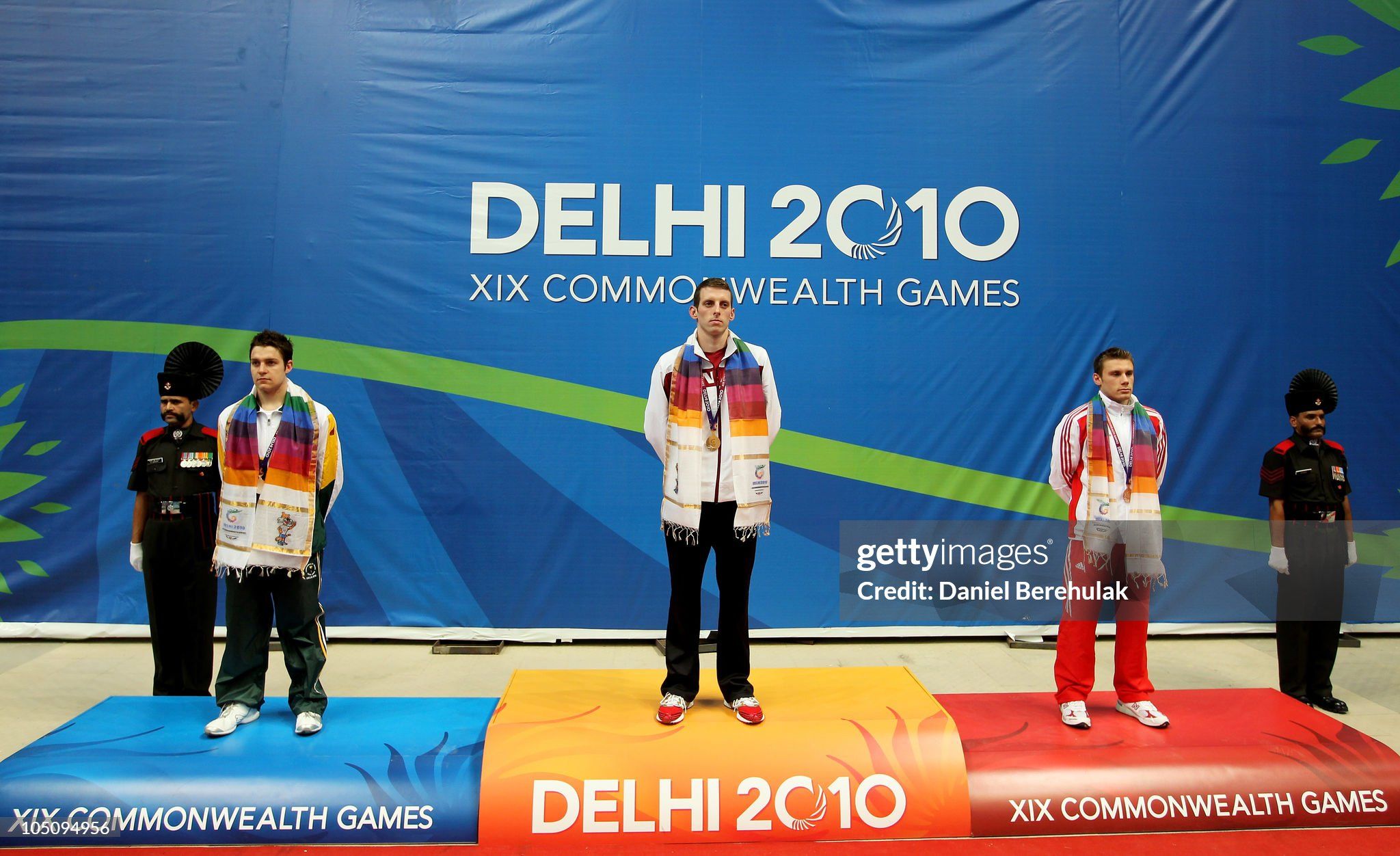
9th October 2010: (L-R) Medalists Heerden Herman of South Africa (Bronze), Ryan Cochrane of Canada (Gold) and Daniel Fogg of England (Bronze) pose during the medal ceremony for the Men's 1500m Freestyle Final at the 2010 Commonwealth Games in Delhi, India.
Heerden was born in Pretoria on December 20, 1990, although he matriculated from Paul Roos Gymnasium in Stellenbosch in 2008, and completed a BComm degree cum laude at Stellenbosch University in 2013. He was named Maties Sportsman of the Year three years in a row.
Heerden was another Rhodes Scholar - awarded a Rhodes Scholarship to study at Oxford University, where he completed a Master's degree in African studies and an MBA by 2016.
In 2008 het hy goud gewen in die 800 meter-vryslag by FINA se junior-wêreldkampioenskappe te Monterrey, Mexiko. By die 2010 Statebondspele in Indië het hy die silwermedalje in die 1500 metervryslag losgeswem en as lid van die 4x200 meter-vryslagaflosspan ook ’n bronsmedalje ontvang.
In 2012 was hy een van net ’n handvol swemmers wat vir meer as een swemnommer by die Londense Olimpiese Spele gekwalifiseer het, naamlik vir die 400 én 1500 meter-vryslag. Hy het ná die Spele uitgetree om op sy Rhodes-beursstudie by Oxford te konsentreer. Hy is terloops ook die eerste Matie wat die Universiteit se Sportman van die Jaar-toekenning drie keer namekaar ontvang het.
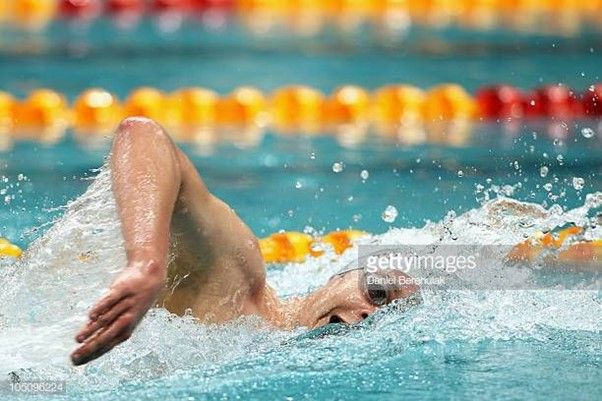
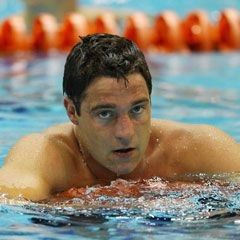
SA's Herman wins 1 500m silver
New Delhi - Ryan Cochrane on Saturday added the 1 500m freestyle gold to his 400m freestyle win to give Canada its second double gold of the day at the Commonwealth Games on Saturday.
The 21-year-old swam in front virtually the whole way and finished in 15:01.49. The leading chaser, South Africa's Heerden Herman, won silver, with England's Daniel Fogg winning the battle of the rest for bronze.
The event has been dominated over the years by Australia and Cochrane - the Olympic bronze medallist - was well outside Kieren Perkins' Games best of 14:41.66 and Grant Hackett's world record time of 14:34.56.
| Event | Course | Time | Pts. | Date | City (Nation) | Meet |
|---|---|---|---|---|---|---|
| 100m Freestyle | 50m | 58.65 | 510 | 18 Mar 2005 | Pietermaritzburg | South African Age Group ... |
| 200m Freestyle | 50m | 1:54.06 | 715 | 2 Apr 2008 | Durban | South African Championships |
| 200m Freestyle | 25m | 1:55.23 | 641 | 20 Oct 2007 | Durban | FINA: World Cup No 1 - 2007 Series |
| 400m Freestyle | 50m | 3:49.55 | 881 | 24 Jul 2011 | Shanghai (CHN) | FINA: 14th World Championships |
| 400m Freestyle | 25m | 3:46.77 | 819 | 17 Dec 2010 | Dubai (UAE) | FINA: 10th World Short Course ... |
| 800m Freestyle | 50m | 7:56.39 | 854 | 15 Aug 2011 | Shenzhen (CHN) | XXVI Universiade |
| 800m Freestyle | 25m | 7:48.77 | 829 | 19 Dec 2010 | Dubai (UAE) | FINA: 10th World Short Course ... |
| 1500m Freestyle | 50m | 15:03.70 | 895 | 9 Oct 2010 | Delhi (IND) | XIX Commonwealth Games |
| 1500m Freestyle | 25m | 14:49.17 | 863 | 17 Oct 2009 | Durban | FINA: World Cup No 1 - 2009 Series |
| 200m Backstroke | 50m | 2:30.79 | 408 | 18 Mar 2005 | Pietermaritzburg | South African Age Group ... |
| 400m Medley | 50m | 5:16.31 | 450 | 18 Mar 2005 | Pietermaritzburg | South African Age Group ... |
| 100m Freestyle Lap | 50m | 57.71 | - | 8 Jul 2008 | Monterrey (MEX) | FINA: 2nd World Youth ... |
| 200m Freestyle Lap | 50m | 1:51.57 | - | 16 Aug 2011 | Shenzhen (CHN) | XXVI Universiade |
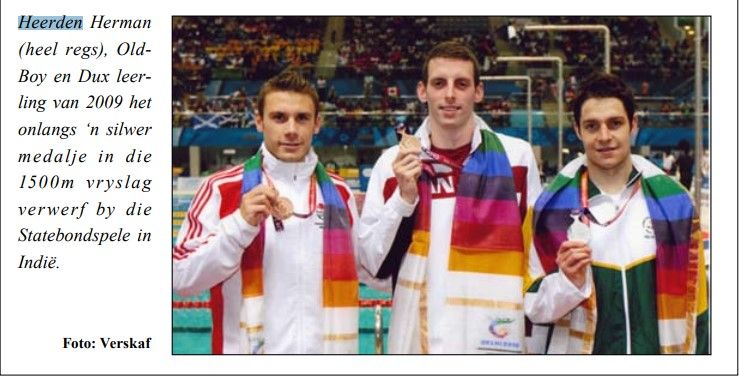
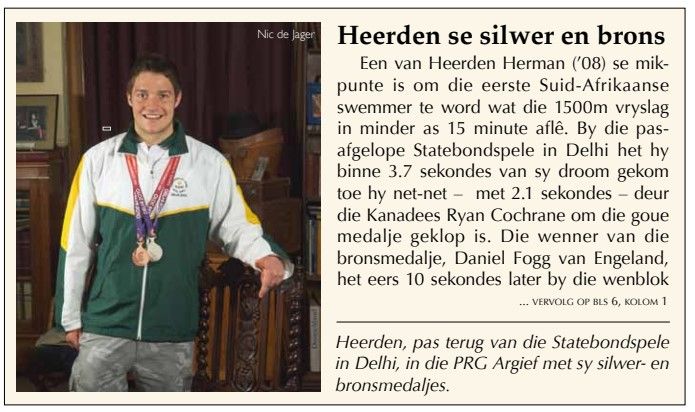
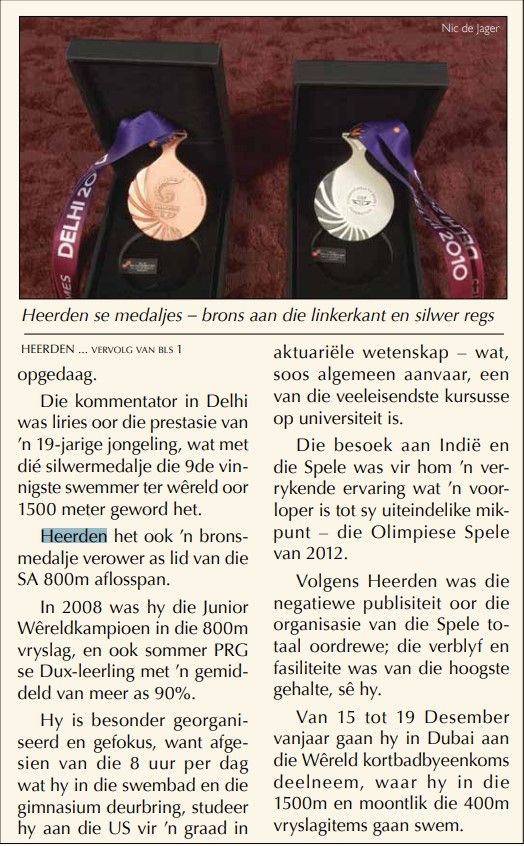
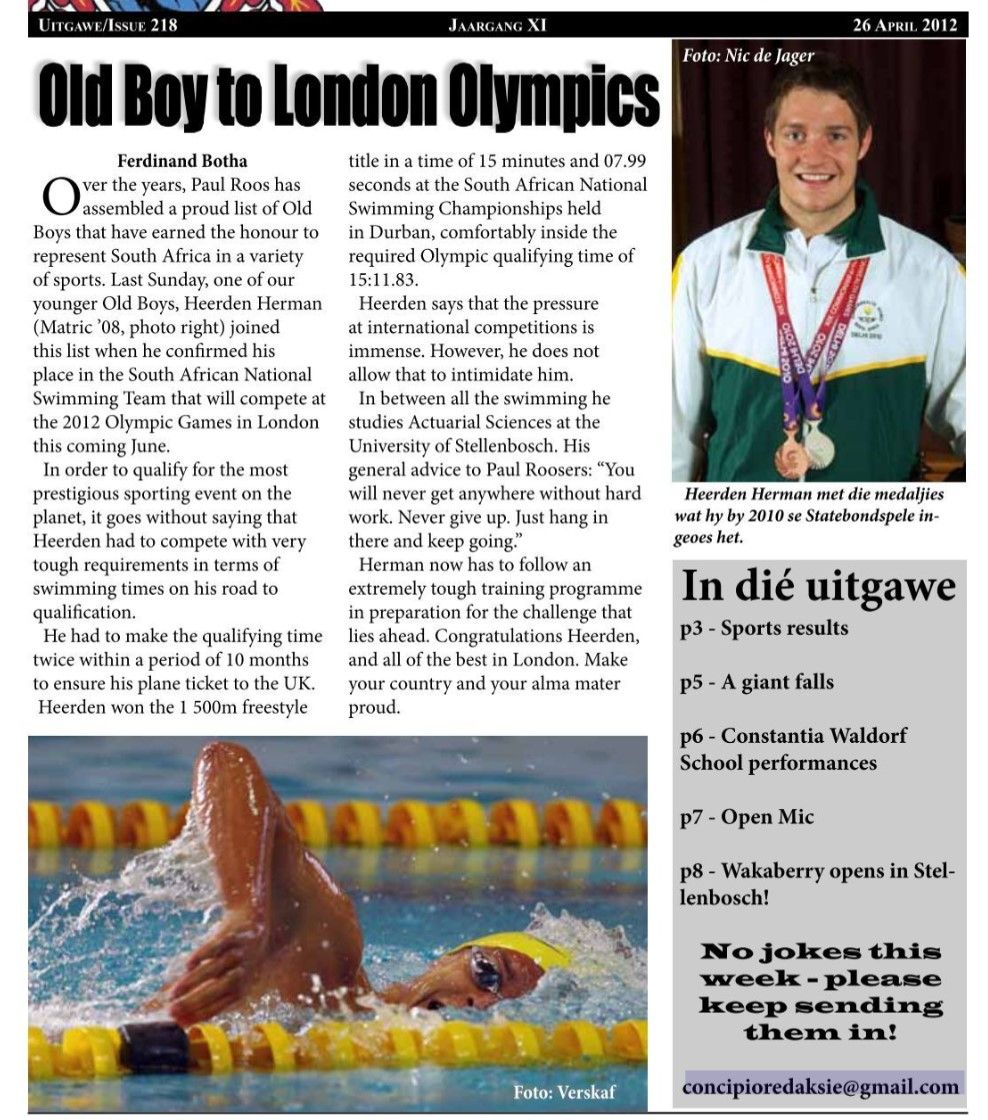
Heerden Herman at Stellenbosch University, and swimming for the Oxford University Swimming Club.
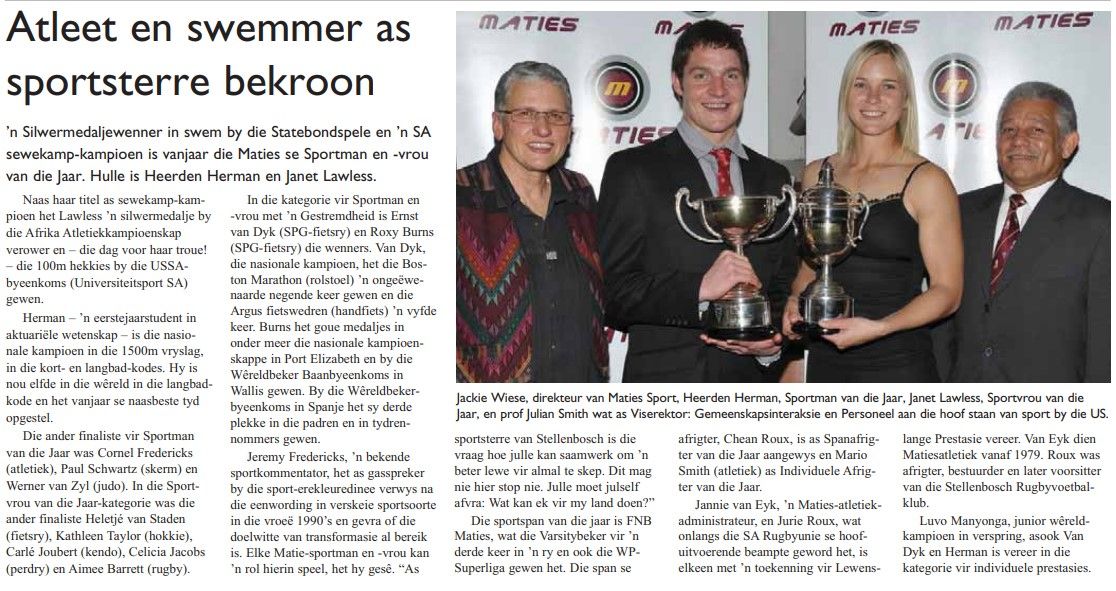

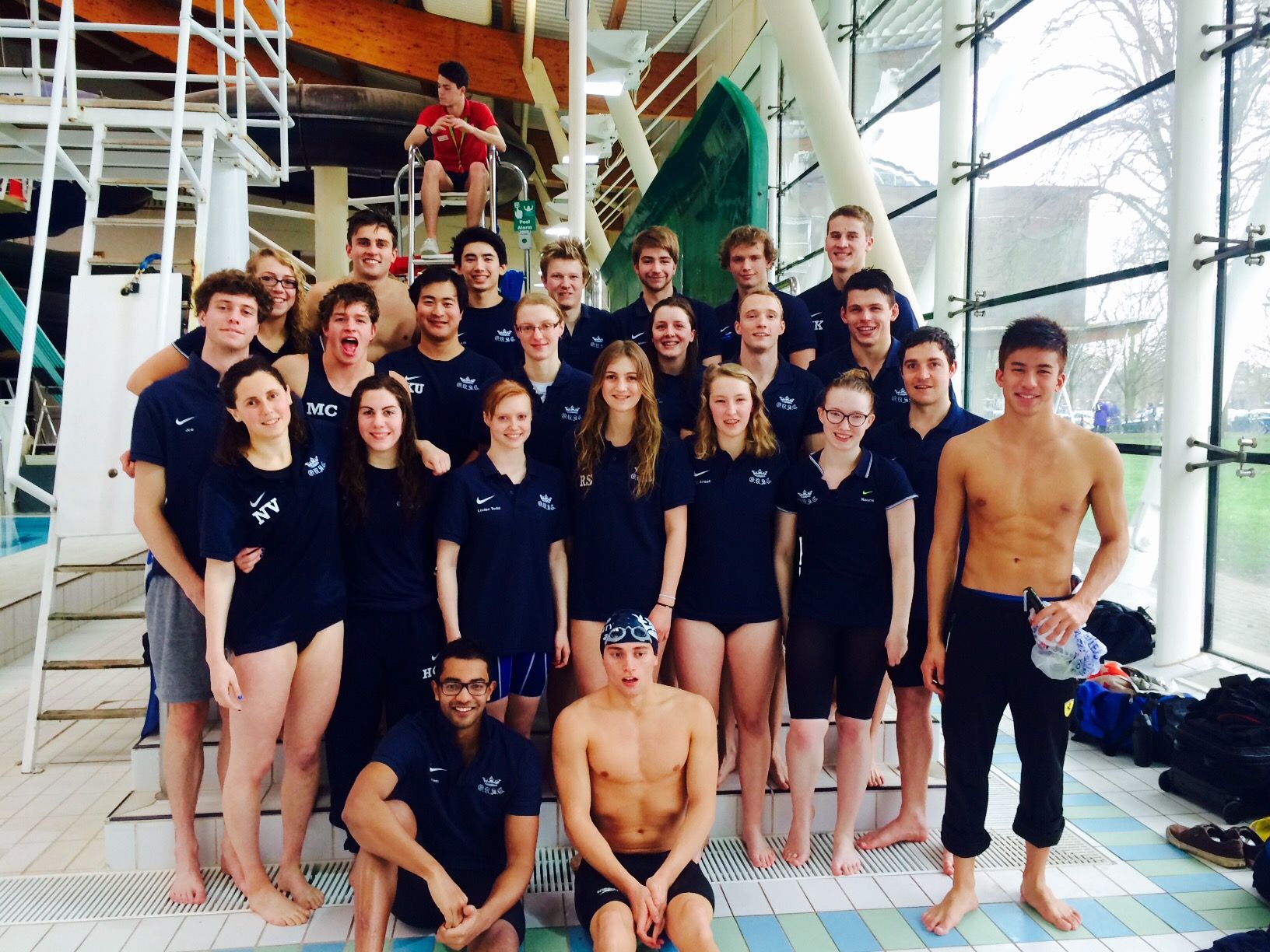
Varsity 2015 was held in Cambridge on February 2015. Oxford were once again victorious in the men’s, women’s and overall trophies.
Heerden Herman was the recipient of the prestigious ‘Swimmer of the Meet’ award for his performance in the 400m Freestyle.
The unseen Olympics: teamwork, trust, and distributed leadership / Blog / The Oxford Character Project
Aug 16, 2021
Heerden Herman swam for South Africa in the 2012 London Olympics and is currently studying for an MBA at the University of Oxford’s Saïd Business School. He is a member of the 2015–2016 Global Leadership Initiative (GLI).
Every four years, the world is witness to the greatest sporting event on the planet — the Olympic Games. In 2016, Rio de Janeiro will play host to the XXXI Olympiad. In 2012, I competed in the London Olympics, swimming for South Africa. It is from this perspective that I would like to write about the importance of teamwork, trust and distributed leadership.
One thing that strikes me as a competitor at the last Olympics and a spectator anticipating all that is to come in Brazil, is that spectators of the Olympic Games get a very one-sided perspective. Watching from the sidelines, through the lens of the world’s media, we see the hero-athletes competing for ultimate sporting glory. It is easy to have the false perception that the great performances are only due to the hard work and talent of the athletes. This isn’t true.
When I entered primary school at the age of 6, my teacher told my parents that my motor-skills were very bad, and she recommended swimming as a way of improving them. And that is where my swimming career started. At the age of 10 I joined a club, and started swimming competitively. As I got older, I started getting some good results through sheer hard work (hours spent in the pool) and a good support base (especially my coach and parents). In 2008, I finished my school career, and had to make the tough decision between swimming professionally or going into full-time studying at University and setting competitive swimming aside. I chose the former. As a professional swimmer, however, things changed dramatically, and my support-team increased drastically. I had a coach and an assistant coach, but that’s not all. I also worked with two sports doctors, a physiotherapist, a masseuse, a nutritionist, a sport psychologist and two sport scientists. All of these individuals formed part of my “team”, along with my close family and friends and training partners. In order to reach your greatest potential as an athlete, it is crucial that you work well within this team. As the athlete, you stand at the center of this circle, and all of your personal and medical information gets shared within this group. It is vital that there is complete trust within this circle. Without it, there will inevitably be a breakdown in performance.
Trust is critical in a group like this since everyone has their own field of expertise. When a problem arises or when an issue needs to be dealt with, it is delegated to the appropriate member of the team, and all the other members will accept the opinion of the expert.
Upon arriving at the Olympic Games, the circle expands even further. Now it includes all your sponsors, your national federation, and ultimately even the public. All of this means that at the moment you mount your block to start your race, the weight of expectation on you can be so big, it is almost unbearable. It is most certainly not just the hero-individual, competing for glory. He/she carries with him the hopes, dreams, and sacrifices of an extremely large group of people.
Throughout my swimming career, I learned a lot of lessons that informed my thinking around leadership and teamwork. Many of these lessons were reinforced this year while doing the MBA and also being on the GLI program. In the MBA, we do a large amount of group work, and I realized again how important it is to surround yourself with people who know more than you and who can help you reach ever better levels of personal performance. What is more, it is crucial that you actually trust these individuals, otherwise their advice will be wasted on you, or you will feel the need to check their work. In times of doubt, or where your own knowledge is lacking, you need to have the trust and the confidence to approach the other members of your team for help. This definitely requires humility as well, a character trait we discussed often on the GLI program as one of the key requirements to be a good leader.
As the leader, it is also important that you make this team understand that each have their own expertise, and sometimes one member’s contribution carries more weight than another’s, even if it hurts their ego to a certain extent. During my swimming career, this specific leadership role was fulfilled by my coach. This is where distributed leadership comes in. When a group of experts like this functions optimally, with each member being empowered to contribute on their field of expertise, the end-product is an amazing spectacle to witness — just like an athlete competing at the Olympic Games — think of athletes like Michael Phelps or Usain Bolt and the amazing performances they have delivered in the past two Olympic Games.
As the leader, and in my case being the swimmer, you also need to recognize that most of the time, you carry the hopes and expectations of a large group of individuals, and it is important that you do not falter under this pressure. Surrounding yourself with a good team, and having people you can share your deeper emotions with, are crucial if you are to deal effectively with this type of pressure.
My Olympic experience has given me a different perspective on the heroes that will emerge from Brazil, and on leadership more generally. It is always good to remember that when you see a very prominent leader, like a President or CEO, he/she is most likely supported by a very strong team operating in the background. Very rarely do leaders succeed all on their own — a good leader will be surrounded and supported by a dynamic group of amazing individuals. The idea of the “hero-leader” is most often completely false. In the end, we must remember that leaders are also human, and even if they are supported by an amazing group of people, they will likely still make mistakes and have setbacks, just like athletes do. But as Baron Pierre de Coubertin (the Father of the Modern Olympic Games) said, “The important thing in life is not the triumph but the struggle, the essential thing is not to have conquered but to have fought well.”
Originally published at https://oxfordcharacter.org.